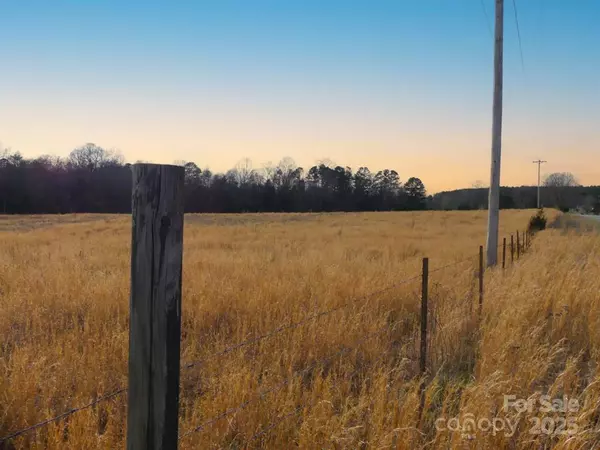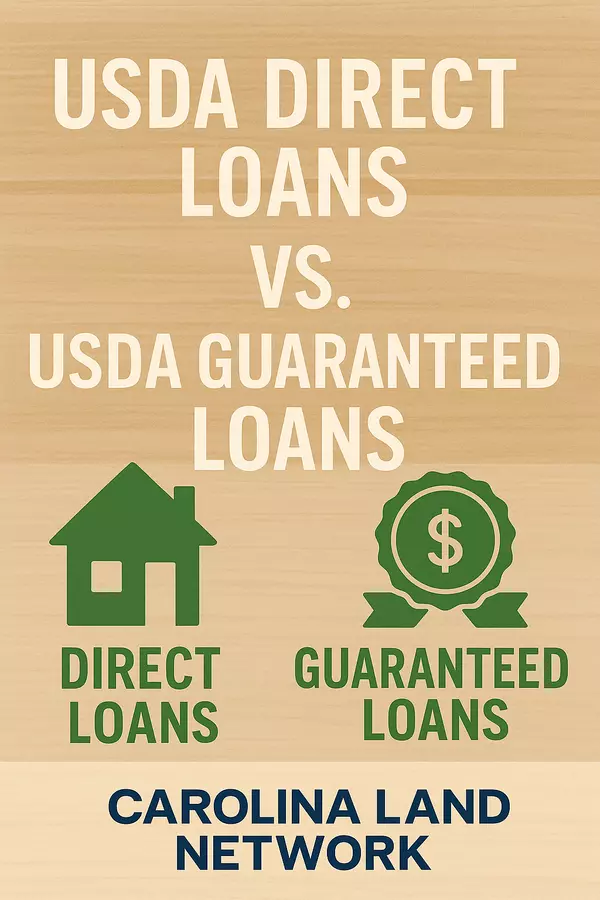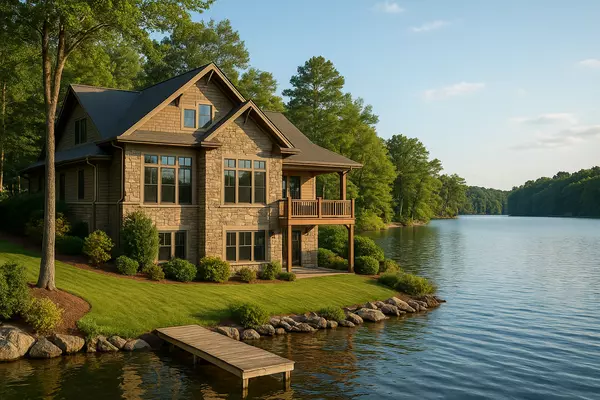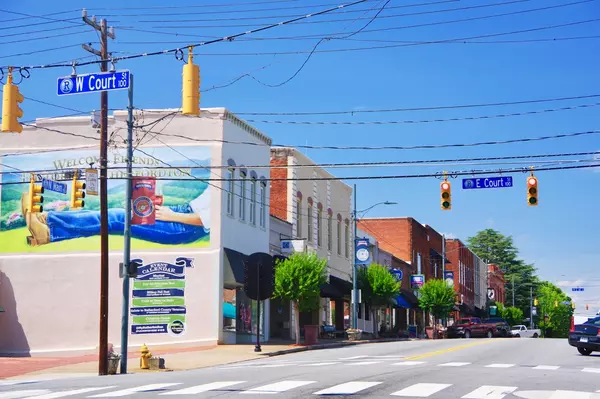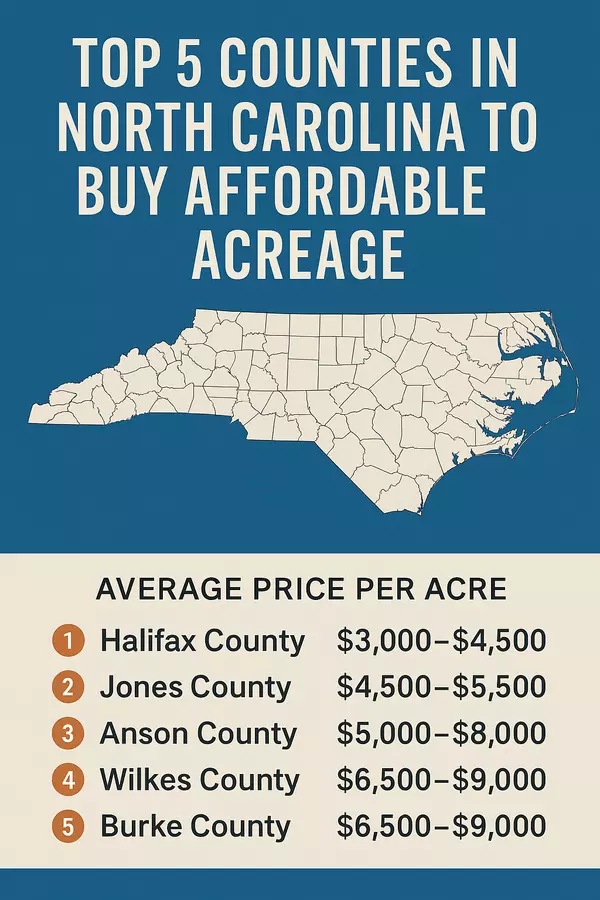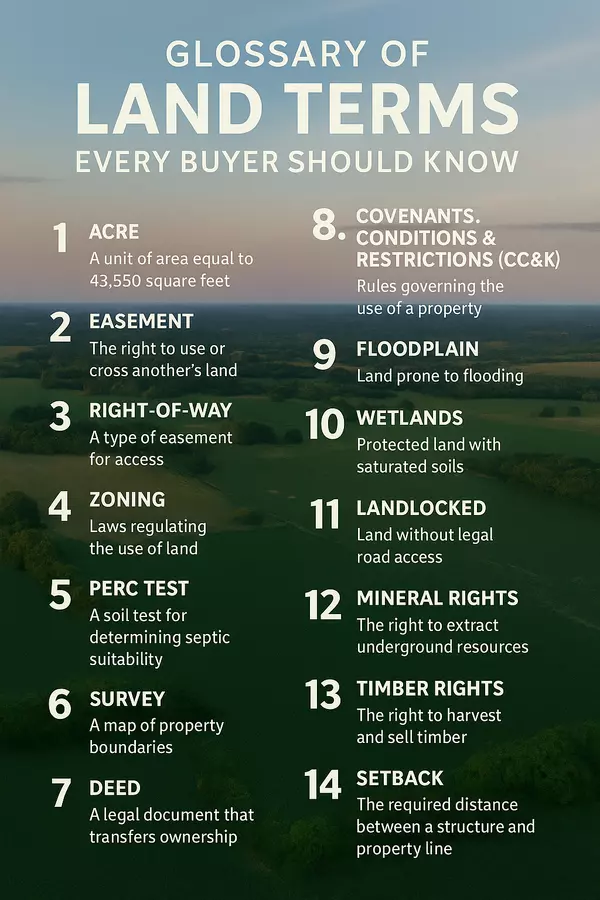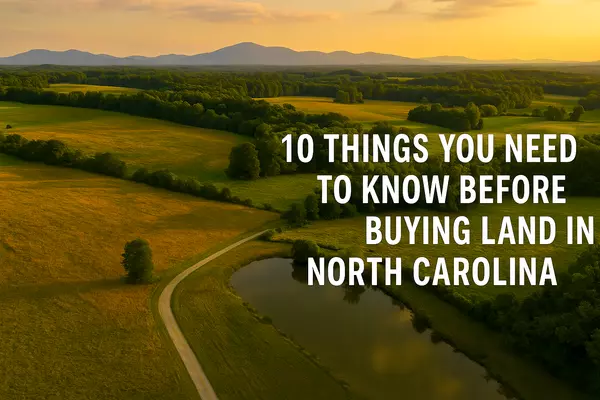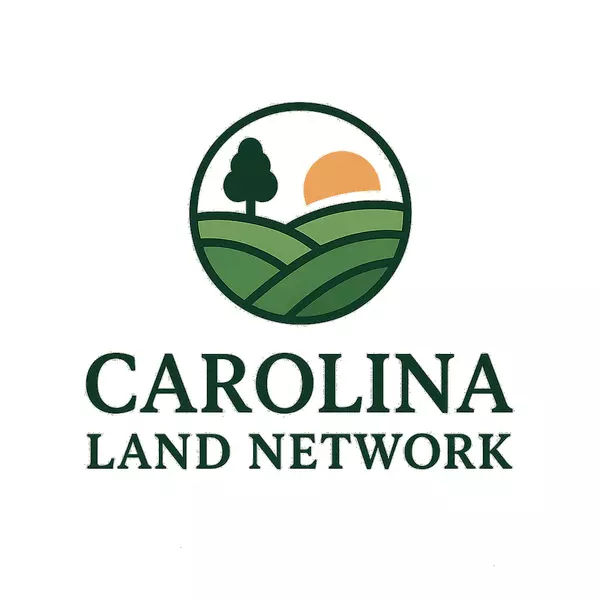Glossary of Land Terms Every Buyer Should Know

Buying land—especially in North Carolina—can feel overwhelming if you're unfamiliar with the terminology. From zoning and easements to percolation tests and right-of-way access, land transactions involve a unique set of terms that don’t typically come up in traditional home sales.
Whether you're buying your first homesite, investing in rural acreage, or searching for farmland, this glossary will help you understand the key land terms every buyer should know.
1. Acre
A standard unit of land measurement. One acre equals 43,560 square feet. Land is often priced and valued per acre.
2. Easement
A legal right for someone else to use a portion of your land for a specific purpose, such as road access, utilities, or drainage. Some easements are recorded and permanent; others are temporary or revocable.
3. Right-of-Way (ROW)
A type of easement that gives someone the legal right to pass through your property, often for road or utility access. Not all ROWs are deeded—some are prescriptive or implied.
4. Zoning
Zoning laws regulate how land can be used (e.g., residential, agricultural, commercial). Zoning affects what you can build, how you use the land, and whether you can subdivide.
5. Perc Test (Percolation Test)
A test to determine if the soil is suitable for a septic system. A failed perc test can prevent you from building a home on the land.
6. Survey
A professional measurement of land boundaries. A survey will show lot lines, structures, easements, and encroachments. Always get a current survey before closing on land.
7. Deed
A legal document that transfers ownership of property from seller to buyer. The deed may include restrictions or covenants.
8. Covenants, Conditions & Restrictions (CC&Rs)
Rules attached to a parcel of land, often created by developers or homeowners’ associations. They can limit what you can build or how you use the property.
9. Floodplain
An area designated by FEMA as prone to flooding. Properties in flood zones may require special insurance or face development restrictions.
10. Wetlands
Protected areas with saturated soil that support certain plant and animal life. Building in wetlands may require state or federal permits—or may not be allowed at all.
11. Landlocked
A property with no legal access to a public road. Buying landlocked land without a recorded easement can make it nearly impossible to build or resell.
12. Mineral Rights
The rights to minerals (like oil, gas, or coal) beneath the surface of your land. These rights may or may not convey with the property when you buy.
13. Timber Rights
The rights to harvest and sell timber on the land. Like mineral rights, these may be retained by a previous owner.
14. Setback
The minimum distance a structure must be from property lines, roads, or other landmarks. Setbacks are part of zoning and building regulations.
15. Topography
The shape and features of the land’s surface, including slopes, hills, and valleys. Steep or uneven terrain can increase building costs or limit development options.
Why This Matters
Understanding these terms helps you avoid costly mistakes and make informed decisions when buying land. Working with an experienced land broker ensures you’re not just buying dirt—you’re buying opportunity, access, and peace of mind.
Looking for Land in North Carolina?
At Carolina Land Network, we help buyers navigate the land buying process with confidence. From soil tests and surveys to zoning and access, we’ll guide you every step of the way.
👉 Browse Available Properties | 💬 Talk to a Land Specialist
Categories
Recent Posts
